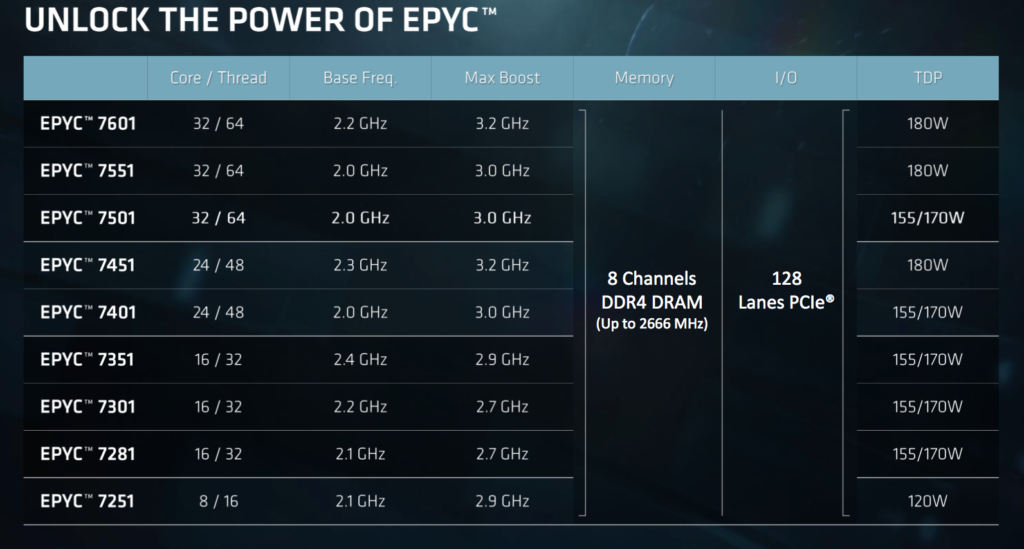AMD’s return to the data center received a boost today when Microsoft Azure announced introduction of instances based on AMD’s EPYC microprocessors. The new instances – Lv2-Series of Virtual Machine – use the EPYC 7551 processor. Adoption of EPYC by a major cloud provider adds weight to AMD’s argument that it has returned to the data center with a long-term commitment and product roadmap. AMD had been absent from that segment for a number of years.
Writing in a blog, Corey Sanders director of compute, Azure, said, “We’ve worked closely with AMD to develop the next generation of storage optimized VMs called Lv2-Series, powered by AMD’s EPYC processors. The Lv2-Series is designed to support customers with demanding workloads like MongoDB, Cassandra, and Cloudera that are storage intensive and demand high levels of I/O.” The EPYC line was launched last June (see HPCwire article, AMD Charges Back into the Datacenter and HPC Workflows with EPYC Processor.)
The instances make use of Microsoft’s Project Olympus intended to deliver a next generation open source cloud hardware design developed with the Open Compute Community (OCP). “We think Project Olympus will be the basis for future innovation between Microsoft and AMD, and we look forward to adding more instance types in the future benefiting from the core density, memory bandwidth and I/O capabilities of AMD EPYC processors,” said Sanders, quoted in the AMD’s announcement of the new instances.
It is an important win for AMD. Gaining a foothold in the X86 landscape today probably requires adoption by hyperscalers. No doubt some “tire kicking” is going on here but use of an Olympus design adds incentive for Microsoft Azure to court customers for the instances. HPE has also announced servers using the EPYC line.

The Lv2-Series instances run on the AMD EPYC 7551 processor featuring a base core frequency of 2.2 GHz and a maximum single-core turbo frequency of 3.0 GHz. “With support for 128 lanes of PCIe connections per processor, AMD provides over 33 percent more connectivity than available two-socket solutions to address an unprecedented number of NVMe drives directly,” says AMD.
The Lv2 VMs will be available starting at eight and ranging to 64 vCPU sizes, with the largest size featuring direct access to 4TB of memory. These sizes will support Azure premium storage disks by default and will also support accelerated networking capabilities for the highest throughput of any cloud.
Scott Aylor, AMD corporate vice president and general manager of Enterprise Solutions said, “There is tremendous opportunity for users to tap into the capabilities we can deliver across storage and other workloads through the combination of AMD EPYC processors on Azure. We look forward to the continued close collaboration with Microsoft Azure on future instances throughout 2018.”
Link to AMD release: http://www.amd.com/en-us/press-releases/Pages/microsoft-azure-becomes-2017dec05.aspx
Link to Azure blog: https://azure.microsoft.com/en-us/blog/announcing-the-lv2-series-vms-powered-by-the-amd-epyc-processor/





























































